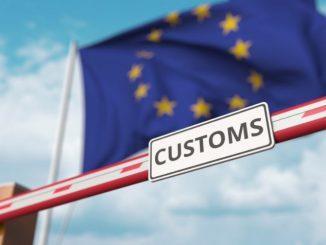
Businesses on both sides of the channel have been given certainty by the overwhelming backing from the European Parliament to the Brexit trade and customs deal, despite the UK’s exit being described as a “historic mistake”.
Logistics UK welcomed the agreement, which it said would keep goods and services flowing freely across the UK’s borders, but it warned there remain gaps, particularly with regards to concert and events logistics.
The deal was voted on by MEPs, with 660 giving it their backing and just five voting against it.
Lord David Frost, the UK minister overseeing Brexit affairs, said he “hugely welcomed” the vote and added: “Hope we can now begin a new chapter together as Europeans, characterised by friendly cooperation between sovereign equals.”
The European Parliament also strongly welcomed the conclusion of the trade and cooperation agreement (TCA), which limits the negative consequences of the UK’s withdrawal from the EU, but it called the move “a historic mistake as no third country can enjoy the same benefits as an EU member".
Sarah Laouadi, Logistics UK European policy manager, said: “The ratification of the TCA is great news for businesses across the UK’s highly interconnected supply chain and will provide them with greater certainty about how and when goods can move across the UK’s borders.
“However, there are still gaps in the agreement; for instance for touring companies that will need to support their customers in the cultural sector when the concert and event season re-starts but will be prevented from touring freely in Europe under the current terms of the agreement.
“It is crucial not to let down this sector, which makes the UK a vibrant cultural hub, supplies events across the continent and provides thousands of jobs, directly and indirectly.”
Laouadi also warned about changes to come in import conditions: “The UK is yet to introduce checks and other requirements on inbound goods, which are expected to be phased in gradually over the next year,” she said.
“Business and government must ensure that all necessary preparations have been made in a timely fashion, to protect the supply chain and prevent unnecessary or avoidable delays at the border or at destination.”













